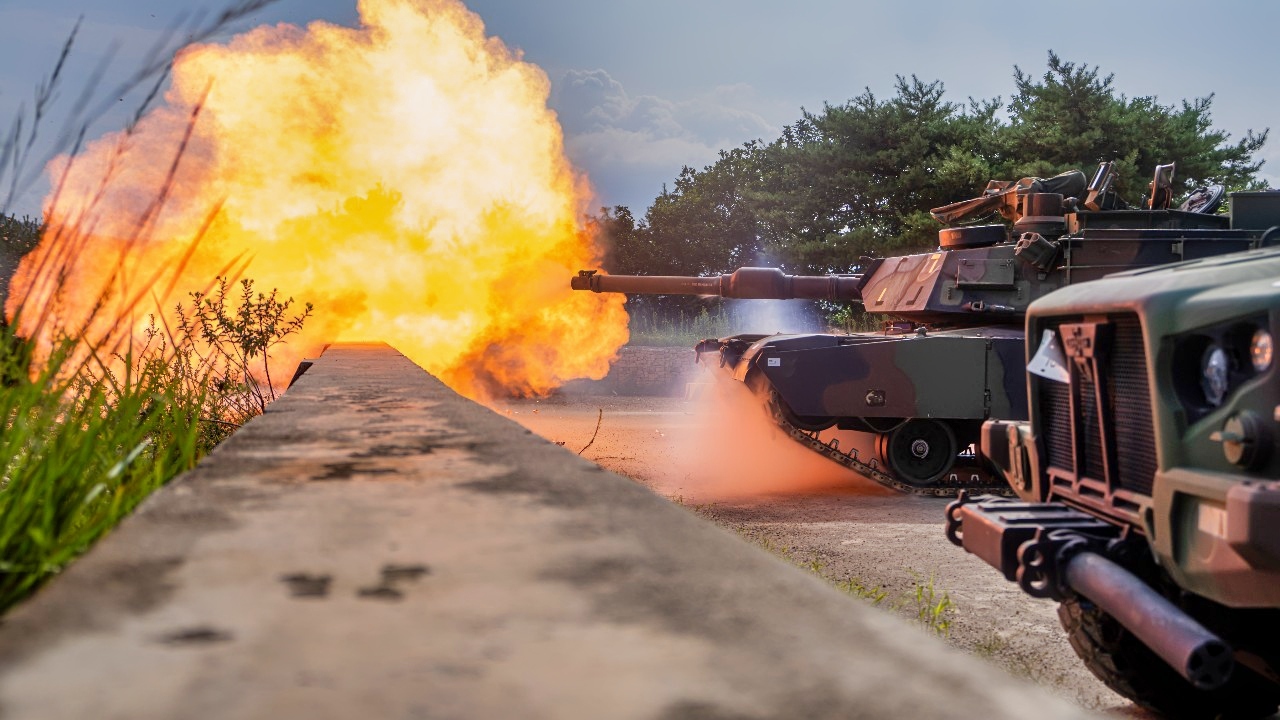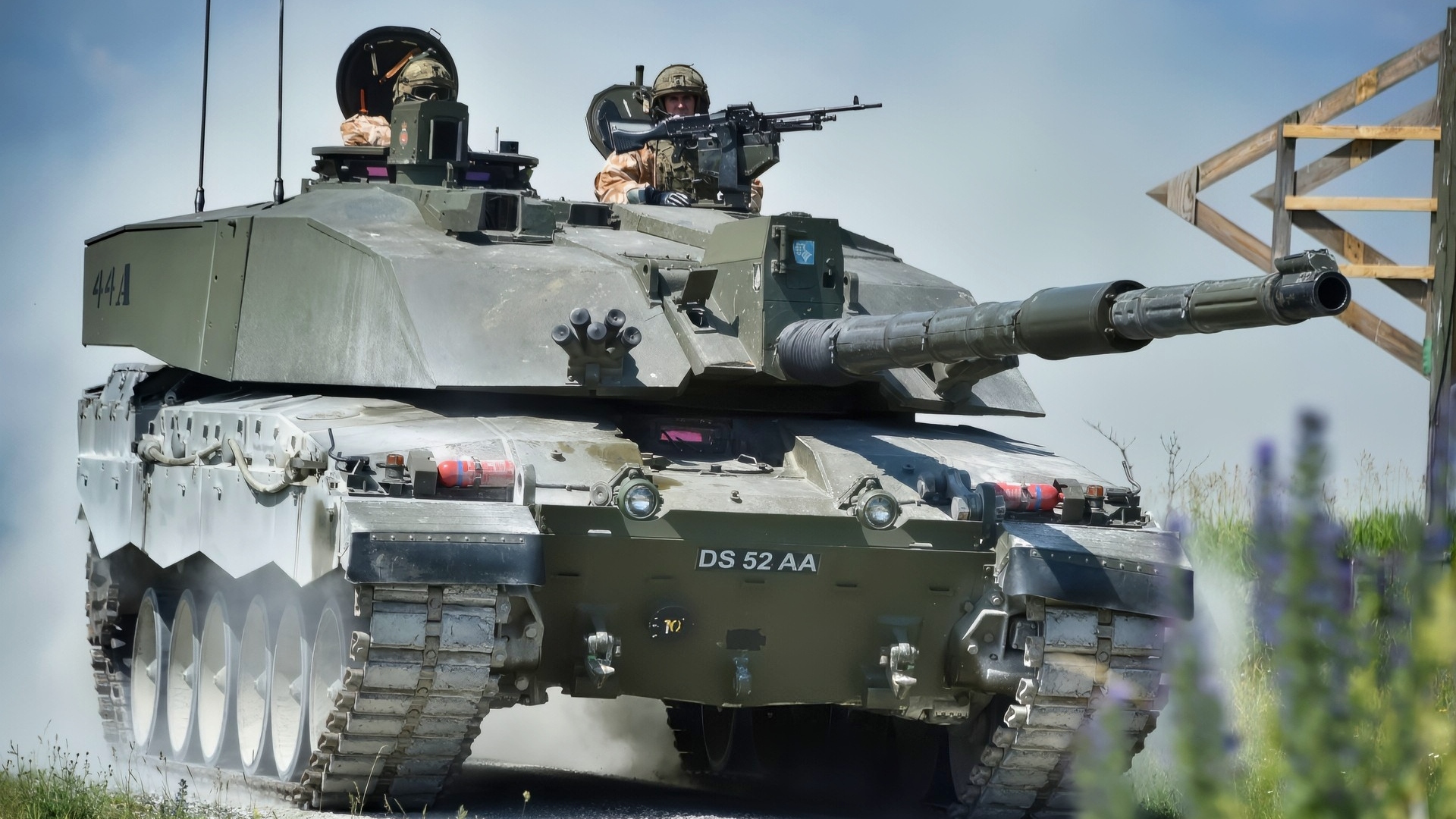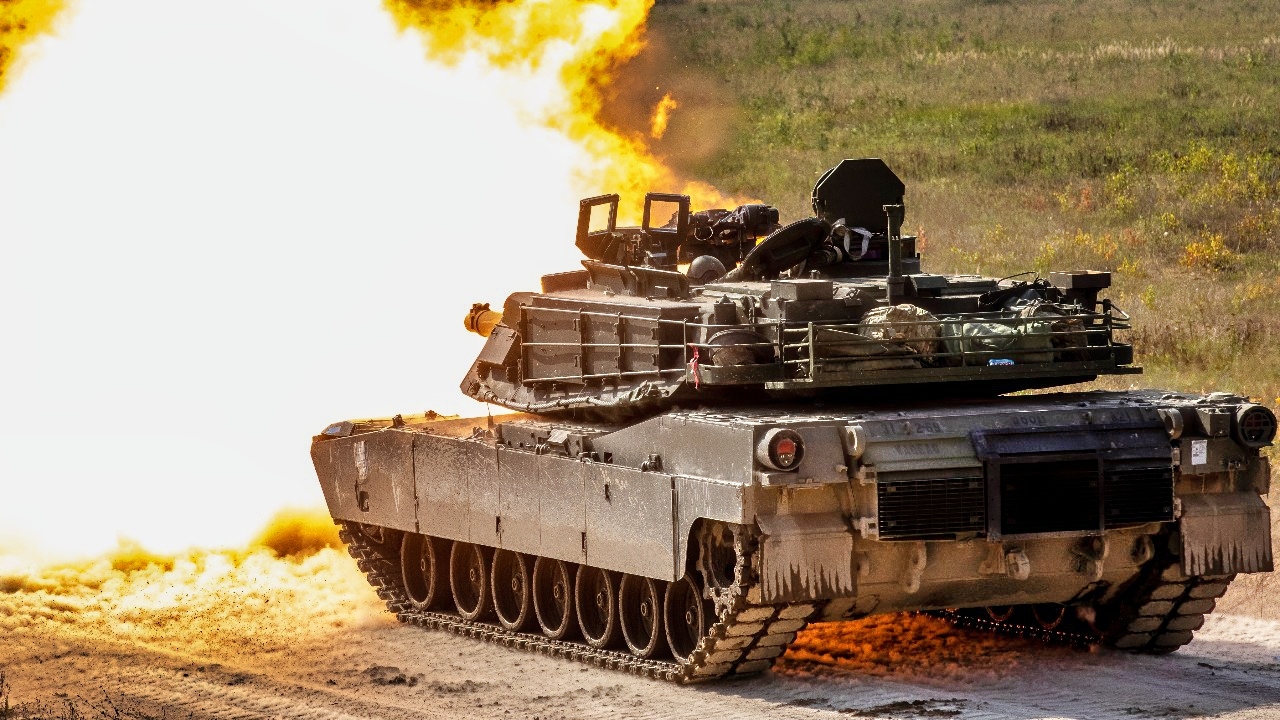Key Points and Summary – Field Marshal Lord Richards, former head of the British military, has bluntly stated that Ukraine cannot win its war against Russia under current conditions.
-In a podcast interview, he argued that while the West encouraged Kyiv to fight, it has failed to provide the necessary means for victory.

An M1A2 SEP v2 Abrams assigned to Bravo Company, 4th Battalion, 70th Armored Regiment, 1st Armored Brigade Combat Team, 1st Armored Division, fires at a target during a zero range at Rodriguez Live-Fire Complex, South Korea, Aug. 5, 2024. The unit is participating in a deployment readiness exercise in support of Operation Pacific Fortitude, which supports long-standing agreements to the Republic of Korea by deploying forces, drawing and transporting equipment to validate unit readiness and the U.S. commitment to the alliance. (U.S. Army photo by Cpl. David Poleski)
-Richards cited Ukraine’s critical lack of manpower as a key factor, asserting that without direct NATO intervention (which he deems unlikely), the best Ukraine can achieve is a stalemate or “score draw.”
-His stark assessment comes as allies debate sending more advanced weapons like Tomahawks and as diplomatic efforts, including a potential Trump-Putin summit, remain uncertain.
WARSAW, POLAND – In the opinion of the United Kingdom’s most senior army officer, Ukraine cannot win against Russia without a dramatic change in the support it receives from allies. That is the view of Field Marshal Lord Richards, who said the best Kyiv could hope for at present was a stalemate.
His comments are the first time a senior British military figure stated that it is impossible for Ukraine to defeat Russia on the battlefield.
Speaking to The Independent’s “World of Trouble” podcast, Lord Richards explained: “What we have done in the case of Ukraine is encourage Ukraine to fight, but not given them the means to win.”
His assessment of Kyiv’s chances of victory in the war is not optimistic, with the former Chief of the Defense Staff saying bluntly: “My view is that they would not win.”
His position matches that of others who monitor the conflict closely and lament the miserly level of support given to Ukraine by the U.S. and EU nations, particularly during the first year of the conflict. The manner of providing military aid to Kyiv has frequently been described as “drip-feeding weapons.”

British soldiers with the Queen’s Royal Hussars move a Challenger II main battle tank down range during the Strong Europe Tank Challenge at the 7th Army Training Command’s Grafenwoehr Training Area, June 4, 2018. The U.S. Army Europe and the German Army co-host the third Strong Europe Tank Challenge, which is an annual training event designed to give participating nations a dynamic, productive and fun environment in which to foster military partnerships, form Soldier-level relationships, and share tactics, techniques and procedures. (U.S. Army photo by Gertrud Zach)
More Resources
On Friday, a meeting of the Coalition of the Willing—a group of 35 countries who support Ukraine—is due to take place in London.
The discussion is supposed to center around what game-changing military hardware could be provided to Kyiv as the calendar clicks on toward winter. In February next year, the war will reach its fourth year.
When asked if he thought Ukraine could prevail against Russia if provided with the proper weaponry and other critical resources, Lord Richard said: “No, they haven’t got the manpower. Unless we were to go in with them—which we won’t do because Ukraine is not an existential issue for us. It clearly is for the Russians, by the way.
“We’ve decided because it’s not an existential issue, we will not go to war. We are, you can argue—and I absolutely accept it—in some sort of hybrid war [with Russia]. But that’s not the same as a shooting war in which our soldiers are dying in large numbers.
“Despite our attraction for all they’ve achieved and our genuine affections for so many Ukrainians, I’m just still in this school that says this is not in our vital national interests. My instinct is that the best Ukraine can do, and you already see President Zelenskyy, who’s an inspirational leader … the best they can do is a sort of a score draw.”
Near-Term Moves By the Allies
Richard’s comments raise some questions about the British policy of providing Ukraine with weapons and other vital resources as the war continues to drag on.
Casualties have been horrific, at least relative to the military conflicts after World War II. The Ministry of Defense revealed last week that casualties suffered by the forces of Russian President Vladimir Putin in this war have exceeded 1 million.

Challenger 2 Tank. Image Credit: Creative Commons.
Last month, U.S. President Donald Trump appeared to contrast with the British Field Marshal’s position when he surprisingly said Ukraine could win the war, reversing his own previous stance. However, after a phone call with Putin last Thursday, Trump appears to have again gone cold on the Ukraine issue.
Trump was expected to hold a new round of peace talks with Putin in Budapest, a move which now seems on hold for now. In the run-up to the meeting, Trump also took a negative turn on the idea of providing Ukraine long-range Tomahawk missiles—a move he had seemed to support before.
Tomahawks are the kind of weapon that could partially compensate for Ukraine’s lack of sufficient manpower. But, as so often happens in this war, the promised capability that Kyiv hopes might prove decisive is not forthcoming.
About the Author: Reuben F. Johnson
Reuben F. Johnson has thirty-six years of experience analyzing and reporting on foreign weapons systems, defense technologies, and international arms export policy. Johnson is the Director of the Asia Research Centre at the Casimir Pulaski Foundation. He is also a survivor of the Russian invasion of Ukraine in February 2022. He worked for years in the American defense industry as a foreign technology analyst and later as a consultant for the U.S. Department of Defense, the Departments of the Navy and Air Force, and the governments of the United Kingdom and Australia. In 2022-2023, he won two awards in a row for his defense reporting. He holds a bachelor’s degree from DePauw University and a master’s degree from Miami University in Ohio, specializing in Soviet and Russian studies. He lives in Warsaw.
More Military
China’s New Aircraft Carrier Has 1 Big Advantage over the U.S. Navy
The B-21 Raider Stealth Bomber Has a New Problem: The Government Shutdown
The B-1B Lancer Bomber Has a Message for the Air Force
The B-2 Spirit Bomber Has 1 Big Advantage over Russia and China
Nuclear Aircraft Carrier USS Nimitz Will Be Retired Next Year: It Might Be a Big Mistake










